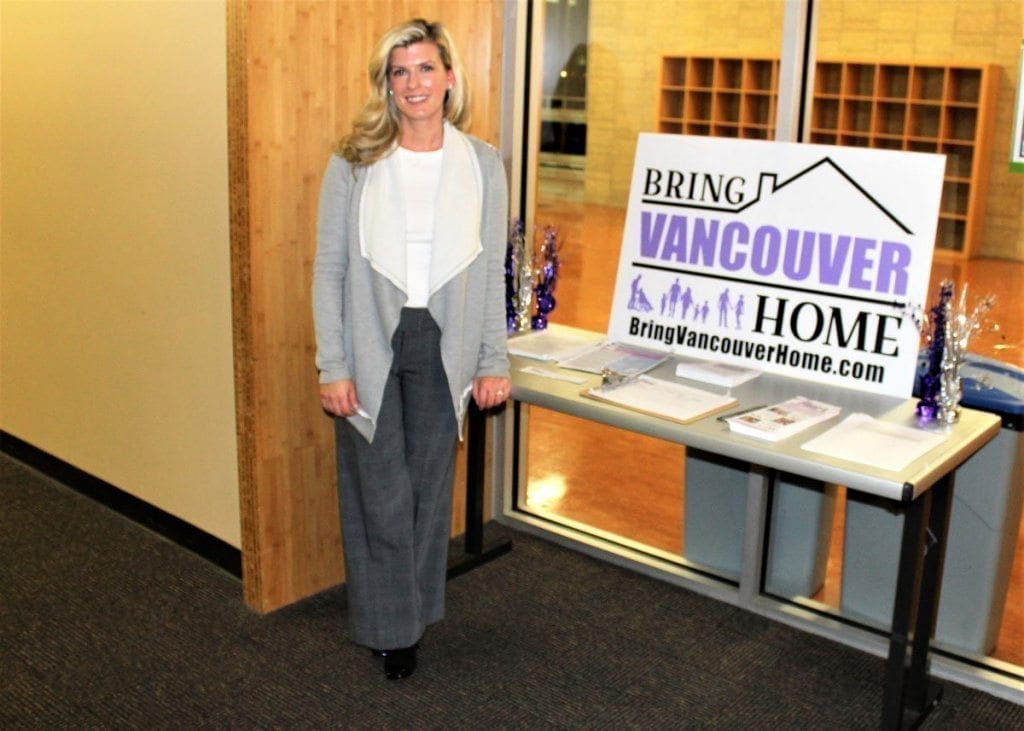VANCOUVER — Two months after voters said yes to preserving and creating low-income housing and preventing homelessness in the city of Vancouver, city leaders are seeking public input on how those funds should be distributed.
The Affordable Housing Fund is funded by the Prop 1 property tax levy Vancouver voters passed in the Nov. 8 General Election, and is intended to increase Vancouver’s low-income rental housing supply and prevent homelessness through rental assistance and other housing services.
The city anticipates that up to $6 million in revenue will be available each year, for the next seven years, for qualifying projects and programs. The city will distribute the funding to organizations and agencies through an annual application process. The draft application guidelines describe this process, the qualifications and requirements for applying and the review criteria.
The city of Vancouver will take comments on its draft application guidelines for the new Affordable Housing Fund, approved by voters last November.
Comments must be submitted no later than 5 p.m., Fri., Jan. 27, and can be submitted by emailing AffordableHousingComments@cityofvancouver.us, mailing Community and Economic Development, Attn: Peggy Sheehan, P.O. Box 1995, Vancouver, WA 98668-1995, or calling Peggy Sheehan at (360) 487-7952.

Levy priorities: lowest-income residents, seniors, families with children, disabled, veterans and people experiencing homelessness
A large percentage of Vancouver voters — 57.6 percent — passed the levy in the Nov. 8 General Election.
“It passed by a pretty large margin and showed that residents care about affordable housing and trust the city to manage the funding,” Peggy Sheehan, the city’s community development program manager, told Vancouver city councilmembers in December.
The Vancouver City Council decided last summer to put Prop 1 on the ballot during the Nov. 8 General Election as an answer to Vancouver’s housing crisis.
Vancouver has an extremely low number of available rental units on the market. In a healthy rental market, five to six percent of units are open and ready to rent. In Vancouver, only two percent of the rentals are empty and nearly all of those available rentals are priced in the medium-to-high range. For low-income families, seniors on fixed incomes, disabled individuals and even many working class families, Vancouver’s rental market offers very few housing options.
“In the last five years, we’ve seen housing prices here go up by 38.3 percent,” Katie Archer, campaign manager for the Bring Vancouver Home campaign advocating for the city’s Prop 1, said during the run-up to the November election. “There are 17,690 cost-burdened families in Vancouver who are spending more than one-third of their income on rent, and 6,855 families who are spending more than half of their income on rent.”
The new levy will serve the city of Vancouver’s lowest-income residents. Sheehan explained that the funds will go to households earning less than half of the area’s median income ($36,650 for a family of four).
The levy priorities affordable housing for seniors, families with children, people with disabilities, veterans and people who are experiencing homelessness. People served by the affordable housing levy must have lived in Vancouver for at least 30 days.
The city’s application review criteria will look at a number of things, including: the number of affordable housing units provided, population served, possibilities for leveraging other dollars, maximizing affordability for low-income households and the feasibility of the proposed project.
Where is the $$ going?
The money collected will fund the following:
Administrative Costs: This will eat up 3 percent of the fund and pay for program oversight, monitoring and enforcement.
Increasing Housing Supply: This is where most of the money — 40 percent — would go. Using a competitive grant process, the levy would provide money to the Vancouver Housing Authority and both for-profit and nonprofit developers to build new affordable housing units. For-profit developers would be required to keep the affordable units for 20 years and the contract would tie the affordable-housing requirement to the land, requiring approval by the city council to get out of the agreement. Nonprofit developers would be required to keep the units as affordable housing, with rents adjusted for income, for the next 50 years.
Preventing Homelessness: Thirty percent of the money will help service providers who work with Vancouver’s most impoverished citizens provide rent vouchers and self-sufficiency services like cleaning up credit histories. Some of this money could be used to build more shelters to serve the area’s homeless citizens.
Preserving Existing Homes: An additional 27 percent of the levy funds would provide money through a competitive grant process to help make needed repairs on homes owned by people who earn less than half the average income in Vancouver. For a family of four, that threshold is $36,650 a year or less. This fund would provide a one-percent interest loan for people to make needed repairs on existing homes. The loan would be paid back into the fund when those homeowners sold their property.
The City anticipates making applications for 2017 funding available starting in March. Vancouver City Council will vote on how to allocate the funding after a public hearing in summer of 2017.
For more information about the city’s Affordable Housing Fund, visit www.cityofvancouver.us/AffordableHousingFund.




